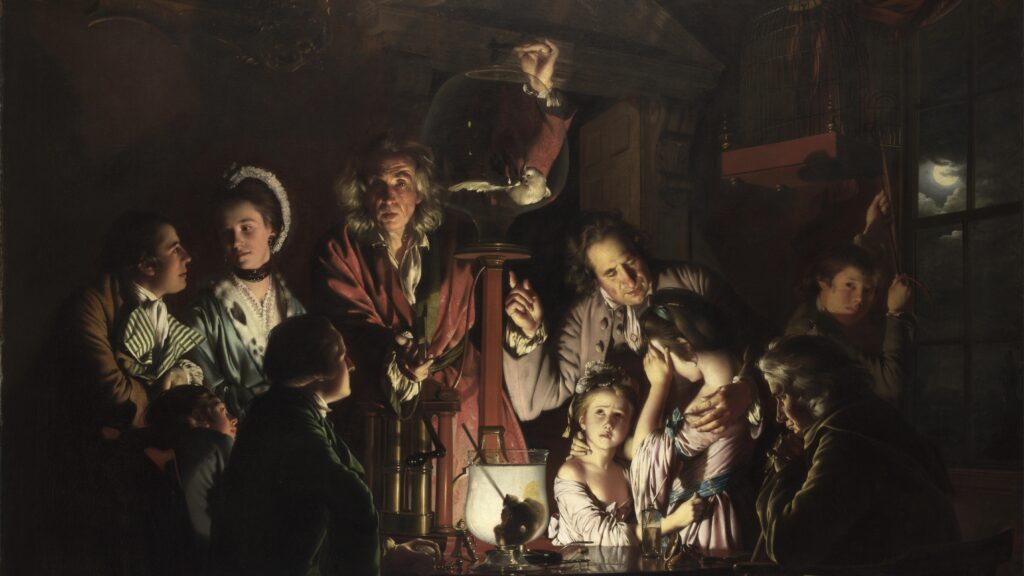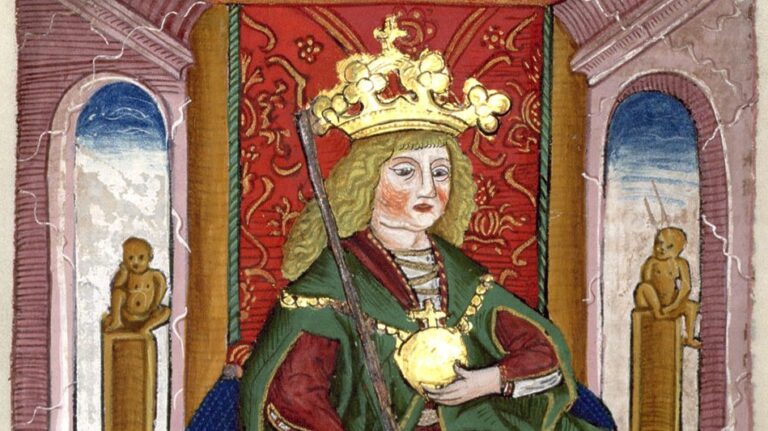With Pentecost just behind us, Hungarian Conservative is sharing some insights into the nature and meaning of the Holy Spirit from the perspective of a believer, written by Mandiner editor and reporter, acclaimed foreign affairs writer Tamás Maráczi. His article was originally published on Mandiner.hu.
In the noise of today’s egos and digital stimuli, the zeitgeist, i.e. the spirit of the age, leads us deeper and deeper into nothingness. However, there is still a narrow path—blessed are those who notice it.
‘Blessed are the poor in spirit, for theirs is the kingdom of Heaven,’ the Bible says. That is, we could say, it is easy for the simple-minded: they do not think, so they do not have to dwell on the complexities of life; instead, they walk gracefully into the kingdom of Heaven in holy ignorance… It was always strange to me why so many people are content with this kind of interpretation, why they think that Jesus meant it this way. That is not the way He meant it, and that is not the way He spoke and thought of people.
The original ancient Greek text clarifies this misunderstanding: as translated literally, Jesus’ words read, ‘Blessed are those who are beggars for the Spirit…’
Namely, the statement made in the Sermon on the Mount is not about intellectual abilities or the quality of the soul, but about the recognition of the spirit: about people who realise that their abilities are limited in the final questions of life, and therefore they need the Spirit of God, just as the poor need donation.
Realising that we are dependent on the Spirit of God—man has been seeking this truth for thousands of years, and there was no age or zeitgeist that could completely erase this recognition or eliminate it from human personality, perhaps because this search was encoded in the spirit of man by the Creator himself.
It was not by chance that I wrote ‘Spirit’ instead of ‘Soul’, and also, in lower case, ‘spirit’ instead of ‘soul’, because the example above shows how important it is to understand what the Scriptures say according to the original meaning. Although the Hungarian language uses the word ‘spirit’ to mean mental or intellectual relationship, the biblical languages, Hebrew and ancient Greek, place reason together with emotions and will in the domain of the ‘soul’ (Hebrew nefes or ancient Greek pszükhé meaning ‘soul’) and separate it from the part of the personality that in Hungarian could be roughly described with the word ‘heart’. However, the word ‘spirit’ is a more accurate term (Hebrew rúach, or ancient Greek pneuma meaning ‘exhalation’ or ‘breath’).
(It is no coincidence either that, according to the Old Testament, at the time of Creation, God ‘breathed’ the ‘breath of life’, i.e. the spirit, into the nostrils of man He formed from the dust of the earth, and thus ‘man became a living being’. Similarly, in the New Testament, Jesus compares the Holy Spirit to the wind that ‘blows where it wants to’.)
According to the Scriptures, man, therefore, consists of three parts: the spirit, the soul, and the body. Among the constituent elements, only the spirit is of divine origin, since, as we have already mentioned, it was breathed into the first man, Adam, by God, and since then, it is also God who breathes it into a conceived embryo at conception.
‘God is spirit,’ say the Scriptures, and thus the ‘Holy Soul’, as is translated in Hungarian, is more accurately described as the Holy Spirit in every language—it is Ruach HaKodesh in Hebrew, not nefes (meaning ‘soul’), and Pneuma Hagion in ancient Greek, not pszükhé (‘soul’). Thus, when Jesus said that God must be worshipped in ‘spirit’ (pneuma) and ‘truth’, He also suggested that
the invisible God cannot be grasped by two of the three constituent parts of the human personality:
the body of senses (organs) bound to the physical world cannot perceive it, but neither can the functions of the soul—God cannot be grasped with reason, cannot be admitted with emotions, and cannot be known by the human will. Only the human spirit is able to know God—the spirit is able to connect with its Creator with the help of its perception, intuition, or conscience (which is the indicator of the spirit carrying the divine value system).
For this encounter, however, the human spirit must ‘live’, because God ‘lives’ as well. Nevertheless, our common experience is that our spirit and soul do not automatically indicate the existence of God, and our personality is not aware of it from early childhood to adulthood, but rather of the uncertainty related to the transcendent. According to the testimony of the Scriptures, the explanation for this is that the human spirit is ‘dead’ (that is, it does not get the signals); therefore, it is not able to know about its Creator, or to recognise and find Him, because it is ‘dead’ due to its sinful condition (which equals separation from God). Namely, if God does not give a sign of Himself, the human spirit is insensitive to the divine dimension by itself.
This is a diagnosis described by the Bible regarding the general condition of man, for which the cure became redemption: God sent his only Son to experience all the joys, rock bottoms, temptations, pain, anxiety, limitations, and vulnerability of life, all the way to his death on the cross worthy of criminals in Roman times (and the descent into Hell for three days).
According to the Scriptures, Jesus, like all of us, experienced everything except sin.
He did not commit any sin during his thirty-three years of earthly life; therefore, He died sinless, even though according to the statement of the Bible, death does not affect those who do not commit sins. That it still affected him was because He did not die for his own sins, but for the sins of others—for our sins. And after God resurrected him from the dead in his body, He gave this immortal, eternal divine life to all those who believe in redemption, and in this ‘change of fate’: those, who accept with faith that Jesus died for their sins, will receive Jesus’ life in exchange.
This is what the Gospel is about. The Messiah put sin out of the way so that the relationship between God and the human spirit could be re-established. And this is the point where the Holy Spirit is needed, whom God sent to Earth with the very mission of setting up the ‘receiving frequency’.
The Holy Spirit is the one who establishes faith in human spirits searching for God. He is our Helper, our Comforter, our Protector (ancient Greek parakletos meaning ‘attorney’), who seeks our acquittal against the Accuser (ancient Greek diabolos meaning ‘prosecutor’), who accuses us constantly. The Holy Spirit is the Person of the Holy Trinity who is currently here, among us, on Earth, as the Father is up in Heaven, and the Son (Christ who became a man in the person of Jesus) was also taken up there in his body after his death and resurrection.
Those who want to know God can do so only through the Holy Spirit—as Jesus put it, ‘it is for our good’ that He went away since the advantage of our time compared to the years of His earthly service is that
God’s presence is no longer bound to place, time, or physical body (the body of Jesus), but is available everywhere at all times.
‘The wind blows where it wants to.’
There is a saying in Hungary, ‘it is only the Holy Spirit that is holding it together…’, which suggests that something hangs by the thread, and will soon fall apart or be ruined—but in reality it is the opposite: the Holy Spirit is God; He can do anything and His power is infinite. He is not an energy, not a theological concept, and not even a symbol, but, according to His own statement—since Christians believe that it was the Holy Spirit that inspired the Holy Bible—, He is the Spirit of God, the Spirit who raised Jesus from the dead and who sustains everything in the universe with His power.
Although Pentecost is over, it is worth considering these facts so that we can look at the goals of our own faith from a different perspective. After all, the Holy Spirit is the ‘seal’ and ‘deposit’ placed in our hearts by God (Eph 1:14), and we await the world of which He is the forerunner.
Click here to read the original article.







